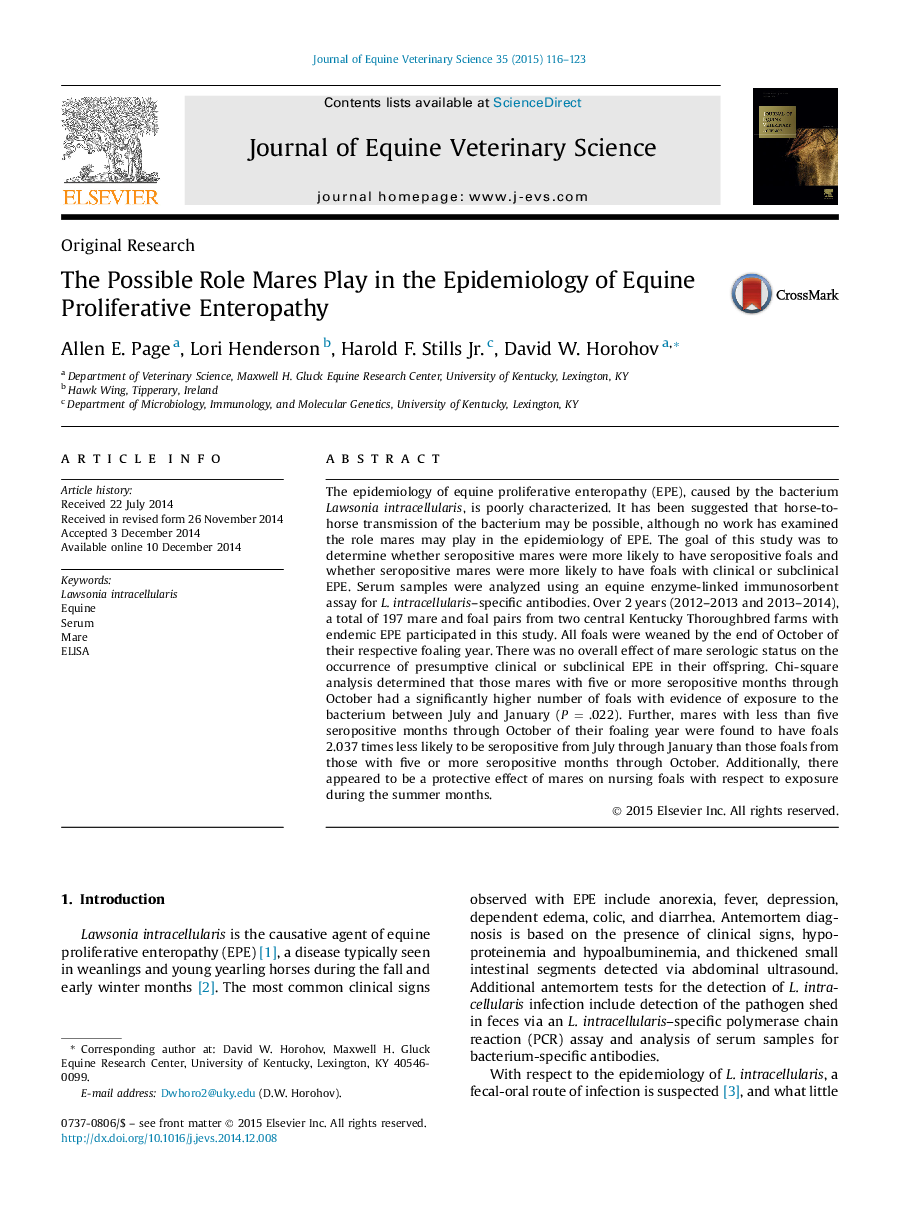| کد مقاله | کد نشریه | سال انتشار | مقاله انگلیسی | نسخه تمام متن |
|---|---|---|---|---|
| 2395005 | 1101544 | 2015 | 8 صفحه PDF | دانلود رایگان |
• Mares have been hypothesized to be a source of Lawsonia intracellularis on farms.
• Mares and foals from equine proliferative enteropathy (EPE) endemic farms were followed monthly with serologic screening.
• Mare serologic status had no effect on the occurrence of EPE in their offspring.
• A possible protective effect of mares on their nursing foals was noted.
The epidemiology of equine proliferative enteropathy (EPE), caused by the bacterium Lawsonia intracellularis, is poorly characterized. It has been suggested that horse-to-horse transmission of the bacterium may be possible, although no work has examined the role mares may play in the epidemiology of EPE. The goal of this study was to determine whether seropositive mares were more likely to have seropositive foals and whether seropositive mares were more likely to have foals with clinical or subclinical EPE. Serum samples were analyzed using an equine enzyme-linked immunosorbent assay for L. intracellularis–specific antibodies. Over 2 years (2012–2013 and 2013–2014), a total of 197 mare and foal pairs from two central Kentucky Thoroughbred farms with endemic EPE participated in this study. All foals were weaned by the end of October of their respective foaling year. There was no overall effect of mare serologic status on the occurrence of presumptive clinical or subclinical EPE in their offspring. Chi-square analysis determined that those mares with five or more seropositive months through October had a significantly higher number of foals with evidence of exposure to the bacterium between July and January (P = .022). Further, mares with less than five seropositive months through October of their foaling year were found to have foals 2.037 times less likely to be seropositive from July through January than those foals from those with five or more seropositive months through October. Additionally, there appeared to be a protective effect of mares on nursing foals with respect to exposure during the summer months.
Journal: Journal of Equine Veterinary Science - Volume 35, Issue 2, February 2015, Pages 116–123
